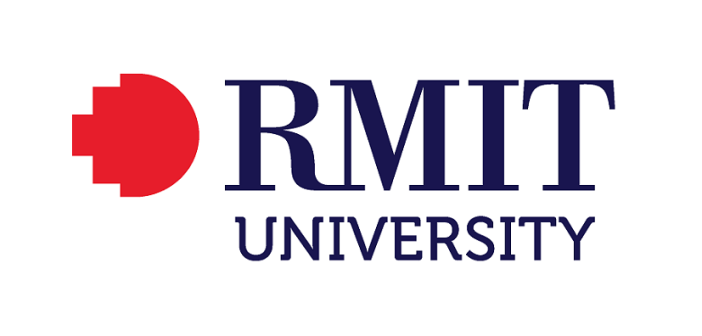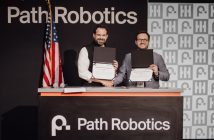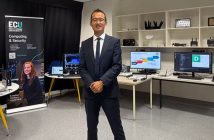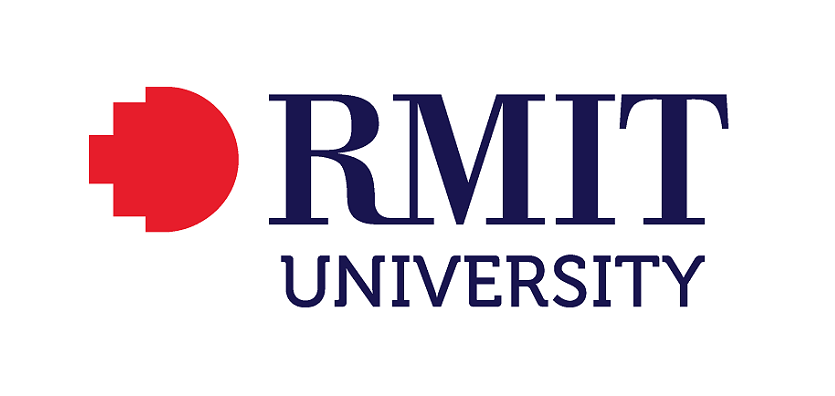
A major new research centre will investigate how rapidly emerging autonomous decision-making technologies can be used safely and ethically for all Australians.
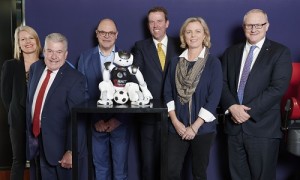 Minister for Education, the Honourable Dan Tehan, has announced $31.8 million in Government funding for the Australian Research Council (ARC) Centre of Excellence for Automated Decision-Making and Society, to be hosted at RMIT University.
Minister for Education, the Honourable Dan Tehan, has announced $31.8 million in Government funding for the Australian Research Council (ARC) Centre of Excellence for Automated Decision-Making and Society, to be hosted at RMIT University.
Led by RMIT Professor Julian Thomas, the Centre of Excellence will bring together national and international experts from the humanities, and the social and technological sciences.
RMIT Vice-Chancellor and President Martin Bean CBE said this substantial investment would position Australia at the forefront of global research.
“This exciting new centre will be the only one of its kind, and RMIT is proud to host it,” he said.
“We have a long history of operating at the intersection of technology and the human experience and, working closely with industry and other partners around the world, we’re focused on improving life for our communities in a time of constant change.
“We are delighted that the centre encapsulates RMIT’s approach to tackling challenging problems in both policy and practice.”
Minister Tehan said automated decision-making technology was being used in self-driving cars or algorithms that were used to make medical diagnosis and business decisions.
“This technology has great potential to transform the efficiency of industry, as well as public and private services, however, as with all technology, it is prudent to explore how to mitigate any possible risks,” he said.
“Our Government is funding research into automated decision-making to ensure this technology provides the best possible outcomes for society and industry.
“Researchers will formulate world-leading policy and practice, inform public debate, and train a new generation of researchers and practitioners.”
Professor Julian Thomas said the global research project would help ensure machine learning and decision-making technologies were used responsibly, ethically and inclusively.
“From artificial intelligence to the blockchain and big data, automated systems are changing our everyday life,” he said.
“New systems offer enormous benefits in many areas but they also pose substantial risks to our privacy and security, and to our welfare as citizens and consumers.
“We urgently need a much deeper understanding of the potential risks of the new technologies, and the best strategies for mitigating these risks.
“Working with international partners and industry, the research will help Australians gain the full benefits of these new technologies, from better mobility, to improving our responses to humanitarian emergencies.”
Researchers from RMIT will collaborate with experts at seven other Australian universities and 22 academic and industry partner organisations from Australia, Europe, Asia and America.
Together they will provide an additional $39.3 million in cash and in-kind support, including access to top national and international facilities, systems and research expertise.
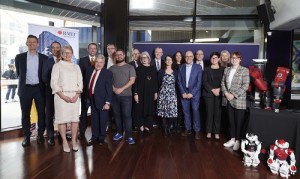 Australian university partners: Monash University, University of Melbourne, Swinburne University, Queensland University of Technology, University of Queensland, University of Sydney, University of New South Wales.
Australian university partners: Monash University, University of Melbourne, Swinburne University, Queensland University of Technology, University of Queensland, University of Sydney, University of New South Wales.
International university partners: University of Oxford, University of Birmingham, Cornell University, New York University, University of Maryland, University of Amsterdam, Netherlands, Hans-Bredow-Institut, University of Hamburg, Halmstad University, Sweden.
Industry partners: Google Australia, Volvo, Australian Red Cross Society, Australian Broadcasting Corporation, Australian Council of Social Service, Australian Communications Consumer Action Network Limited, Consumers Health Forum of Australia, Victorian Information Commissioner, Bendigo Hospital, Max Kelsen, Consumer Policy Research Centre, Data + Society Research Institute (US), Digital Asia Hub (Hong Kong), Algorithm Watch (Germany).


